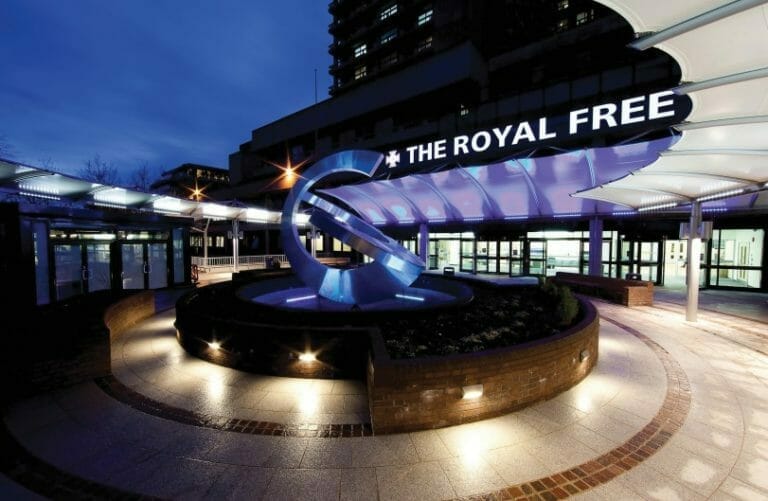Blepharoplasty

Our private Blepharoplasty services are provided at the Royal Free Hospital, Hampstead.
To find out more about our hospitals click here:
What is blepharoplasty?
Blepharoplasty is a type of eye surgery that is used to repair droopy and heavy eyelids. It involves removing excess fat, skin and muscle from around the eye area. The surgery involves making a small incision (cut) in the eyelid, and removing or redistributing some of the sagging skin and fat around the eye. It can be performed as a cosmetic eye surgery, or to help repair visual problems caused by heavy eyelids.
What conditions can you treat with blepharoplasty?
Blepharoplasty surgery can help to make your eyes appear younger, fresher more symmetrical and often remove a tired appearance. They can sometimes help improve eyesight problems or headaches caused by baggy eyelids.
As part of the natural ageing process, the skin around the eye becomes thinner and the muscles around the eye may become weaker. As a result, fat may be deposited around the eye, leading to sagging, heavy eyelids and drooping foreheads. Older age can also affect the lower eyelid, and can cause bags under the eye. Lifestyle factors such as long-term sun exposure, smoking, alcohol and certain diets can speed up this process of change to the eye area.
What are the risks of having blepharoplasty?
Blepharoplasty is commonly performed as a minimally-invasive surgery. This is usually a day case and does not require overnight stay at the hospital.
Like any surgery, blepharoplasty carries some small risks, although an experienced surgeon will minimise these as much as possible. Some of the risks include dryness of the eyes, infection or excessive bleeding around the site of the surgery. There is also a small risk of injury to the muscles around the eyes, as well as the possibility of some scarring and skin discolouration. Although this procedure is very successful in the vast majority of cases, it is important that you consult a specialist prior to surgery. One of the rarest risks is damage to the eyesight.
How long does it take to recover from blepharoplasty?
The recovery period from eye surgery such as blepharoplasty varies from person to person. Immediately after the procedure, patients will usually spend a few hours in the recovery room, after which they can go home.
Any bruising or swelling after the surgery will take around 10-14 days to clear. The surgeon may recommend using icepacks for a few days to help this. Often, people feel comfortable going back to their day-to-day activities after the bruising and swelling has settled. It may be helpful to wear heavily tinted sunglasses to protect the eyelids from excessive sun and wind.
Strenuous exercise, straining or heavy lifting should be avoided for approximately a week after eye surgery. Also, contact lenses should not be worn for at least two weeks after the operation.
What we offer
The Royal Free Hospital Private Patient Unit (PPU) is unique in that all of our profits are reinvested into NHS services. This allows us to combine the convenience, comfort and personalised attention of a private hospital with the very best state-of-the-art services, technology and professional excellence expected from a top London NHS teaching hospital.
We are proud to offer access to specialist experts in ophthalmology who deliver quality care both in the NHS and our PPU. They work closely with an experienced multidisciplinary team and are fully committed to delivering the highest standards of care.
